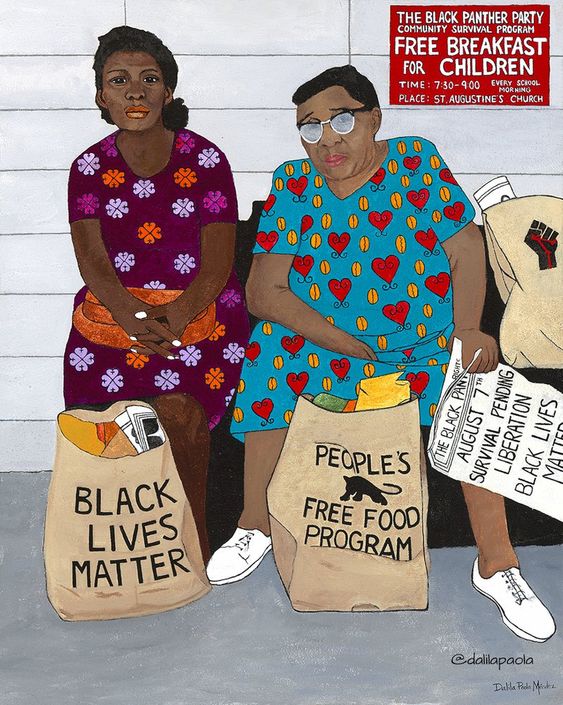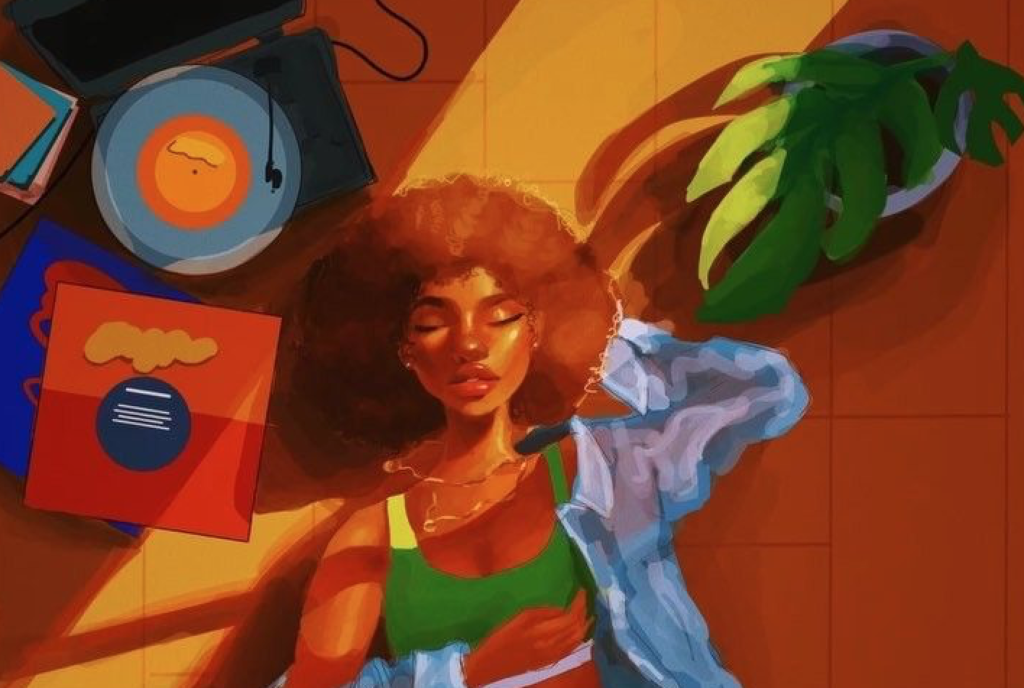On May 17th, the Urbanoire team stopped by the Museum of Food and Drink for the event and panel Culinary Lyricism: Exploring the Intersection of Food and Music in Black Community and Culture. The Africa Center brought together chef and food writer Amethyst Ganaway; chef, restaurateur, and culinary activist Alexander Smalls; food scholar and future PhD student Nia-Raquelle Smith, and chef and a Tribe Called Quest member Jarobi White. Together, they discussed the parallels, potentials, and connections between two of the most ephemeral forms of artistry: music and food.
My father is a baker, and his mother before him. From them, I know that “mmmm” is a song. I can’t remember any season without cakes, pies, and loaves of banana bread made with the love of someone and for the love of somebody else. Often enough, when a caramel cake would need decorating, I would set myself on a stool as the radio played. The icing needed constant stirring while it reduced and thickened. Music was an essential pairing to the meditative motion of the spoon in the pot.
Culinary Lyricism brought back those connections between family, food, and music. Ganaway, Smalls, Smith, and White came together to illuminate how taste, harmony, and silence are inextricably intertwined in the past, present, and future of the Black diaspora. The panelists knew food to be a place of storytelling. Ganaway recounted the collision of music and flavor in a busy commercial kitchen. White spoke more generally, emphasizing that both food and music are modes of art grounded in memory. Smith built on those memories as she spoke about “Follow[ing] the Drinking Gourd” being a song about directions, grounded in storytelling and delighting in a double entendre with food at its heart.
When one pays attention to culinary lyricism and takes it as a lens to see the past anew, our peoples’ history is revealed. Meaning denied by racist schemings is returned to us, and the myriad possibilities an oppressive history has tried to erase, suddenly appear possible, rooted in the humanity we share with our ancestors. As the conversation moved, I found myself bringing together worlds little imagined when I stirred that icing all those years ago.
We see more than we are what we eat. Food is connected to a wider issue of access and inclusion, with one of the questions posed being, Who gets to appreciate and appropriate our culinary experience? From food deserts to targeted advertising, there is a pervasive lack of control over what we get to eat as well as who profits from what we have made. The meaning carried in food and song has been a vital resource in our emotional liberation, but we are still unliberated in so many spheres. To paraphrase the panelists, “though there is pleasure in the kitchen,” we still live in a world that has caused Black folk displeasure and pain across the diaspora.

Smith, Ganaway, Smalls and White touched on discussing the potentials of what culinary reparations, crediting the black and brown people who contributed to the American culinary landscape could look like. Ultimately, in righting the wrongs of the past, you cannot divorce culinary culture or any aspect of culture from broader society—and as Smalls best puts it, the “[reparation] conversation is not married to a restaurant or kitchen…but starts foundationally in our society… it’s about addressing the cancer in our society, one dominated by white male entitlement.”
The meaning carried in food and song has been a vital resource in our emotional liberation, but we are still unliberated in so many spheres.”
-Michael Bellamy
Yet even in a broken world, food and music still stand to be manifestations of home. What do you remember of your lovers? I know I recall first the ribs, the butter-bread, the grits (team salt), the turkey neck and the ham hock greens. With them, I am grateful my folks made sure I was fed with love. I remember too, the soul ballads gospel singers remixed for the holidays. Black food and music show me what a home is, rather than just telling me. This tradition stems from our ancestors where spirituals, songs, and sayings grounded in nourishment were powerful manifestations that allowed enslaved folks to orient themselves in strange lands and find the way to home.
To know something is careful work is to taste the cooking of our grandmothers, or to, in the words of Jarobi White, witness hip-hop’s language, eavesdropping on a conversation weaved in coded intricacies. Culinary lyricism is an appreciation of who we are as a people, challenging us to demand fuller respect for our palate, whether singing or tasting this sweetness and the sorrows of this world, while broadening our awareness of what sustains us. Whether cake or beats, when we get a chance to ask, deeply– what we are We cooking– it’s an act of reverence.

